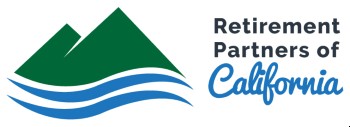Recently I sat down with a Certified Public Accountant (CPA) who specializes in auditing 401k plans.
Large 401k plans are required to be audited under Employee Retirement Income Security Act (ERISA). Bradley shared with me 7 problem areas for plan sponsors that he sees exposing the company and plan fiduciaries (Not sure if you’re a fiduciary to your plans?) to litigation and regulatory scrutiny.
Which 401k Plans Require an Audit?
 Plans that start the year with over 120 participants in the plan. Once a plan has one audit, then they need an audit every year unless their participant balance drops below 100. That’s where Bradley comes in. Keep in mind that Bradley’s audit is not to be confused with the Department of Labor (DOL) audit that can be done at any time. We have seen a growing and growing number of companies audited for the DOL every year as they continue to grow their headcount of 401k auditors across the country. Bradley said these are the areas that are tripping companies up when it comes to their 401k audits.
Plans that start the year with over 120 participants in the plan. Once a plan has one audit, then they need an audit every year unless their participant balance drops below 100. That’s where Bradley comes in. Keep in mind that Bradley’s audit is not to be confused with the Department of Labor (DOL) audit that can be done at any time. We have seen a growing and growing number of companies audited for the DOL every year as they continue to grow their headcount of 401k auditors across the country. Bradley said these are the areas that are tripping companies up when it comes to their 401k audits.
Keep in mind, liability and fines during your DOL Audit is just one headache to consider. Suing companies on behalf of the employees about 401k mismanagement has become a big business for some law firms that have chosen to focus on this area. But that is a topic for another day.
Here are 7 mistakes he sees companies make time and time again to not prepare properly for a DOL Audit:
#1 – No Investment Policy Statement (IPS)
I agree. I see far too many companies completely unaware of what an IPS is. The Investment Policy Statement guides the fiduciaries and oversight committee as to their roles and responsibilities with respect to the plan, as well as includes the allowable and unallowable plan activities. Since I am the investment fiduciary for my clients, this document explains the criteria that I will hold the investments too as I perform my investment reviews each quarter either as a 3(21) investment fiduciary or 3(38) investment fiduciary.
Note: Keep in mind that ERISA does not require you to have an Investment Policy Statement but if you do, you better be following it or you risk being fined.
#2 – No Established Retirement Plan Committee
A 401k plan needs to have an oversight committee, which regularly meets, to review plan activity and perform tasks that are discussed. This committee should include all named fiduciaries. He recommends they meet at least quarterly. For larger plans (over $50 million in size) I agree but for smaller, I think annually is just fine.
#3 – Definition of compensation issues
Inside of the 401k plan document (the plan document is the document where you state the rules regarding the 401k) you must clearly state what types of employee compensation are included in the calculation. Once you state that, then you simply need to follow those rules.
Here’s an example of when an employer has a problem. In the plan document, they state All W-2 wages are to be included but then the employer incorrectly excludes certain types of compensation such as bonuses or vacation payouts when calculating employee deferrals or employer match. I’ve seen companies firsthand get fined for that alone during an audit.
#4 – Lack of minutes from retirement plan oversight committee meetings
When the 401k oversight committee meets, just like all important meetings, you should record minutes. Not a glamorous job but someone has to write down what was discussed. Some might say “If there are no minutes, it didn’t happen”. I think not having minutes is going to make your DOL audit very uncomfortable. Picture yourself sitting there explaining to the auditor that you did have meetings and they were really good meetings, but you just don’t have notes. Not fun, right? That’s why I make a point to take the minutes then document them in our CRM cloud for easy access for when that day comes.
I know that’s only 4 of 7 reasons for 401k audits but this post feels like it is already getting a bit lengthy. Let’s break right here and continue next week.
In the meantime, if you have questions feel free to book a consultation today.
Have questions? Let’s discuss your 401k or company retirement plan.
Disclosures:
For plan sponsor use only, not for use with participants or the general public. This information is not intended as authoritative guidance or tax or legal advice. You should consult with your attorney or tax advisor for guidance on your specific situation.
#05115539







